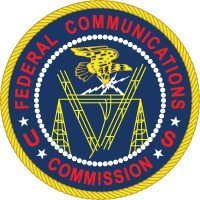Copper or fiber, past or future? Is new FCC rule a ‘major step back?’
WASHINGTON – Bruce Mehlman, U.S. Assistant Secretary of Commerce for Tech Policy under the George W. Bush administration and Internet Innovation Alliance founding co-chairman, spoke with RCR Wireless News about the Federal Communications Commission’s Technology Transitions Order, which the FCC passed Aug. 6.
“Broadly, we need the IP transition to happen as soon as possible, and it is essential that we maximize investment in infrastructure.” Mehlman said, adding that the FCC’s current rules “fumble the balance required by excessively favoring legacy operators that lease copper rather than invest in fiber and could potentially force broadband providers to sell their services to competitors at legacy copper prices.”
The Technology Transitions Order was, according to the FCC, implemented “to ensure competition thrives as our networks continue to transition. Specifically, we implement revisions to our copper retirement rules and our service discontinuance rules to ensure that competitive carriers are adequately informed about technology changes that impact them, the interests of end users impacted by upstream changes in service by providers of wholesale inputs are adequately recognized as important to our service discontinuance process, and competitive carriers do not lose the access that they need to continue to provide the benefits of competition.”
“There’s a real possibility the FCC order could be a major step back,” Mehlman said. “It would have been better if the FCC stuck to the proven framework of New Wires New Rules, which it adopted in the 1990’s.” He went on to say, “As we saw in the ’90’s, cable networks able to lease at competitive prices out-invested those forced to do so at FCC-mandated set prices.”
Mehlman reiterated that investment in infrastructure build-out was the most costly aspect of telecom providers’ businesses. Moreover, he noted the copper-wire infrastructure the FCC favored in its order is essentially “the equivalent of horse and buggy technology.”
This echoes the sentiments of the IIA official statement on the FCC IP rule that said, “Today’s consumers want the benefits of high-speed, reliable IP-based networks, and there is no turning back. Americans stream millions of hours of video content, stay in touch with friends and family in video chats daily, and are integrating online learning into their lives at a rapid pace. The new world we have entered relies on these services and untold others that we can’t predict today. It’s important for industry and the FCC to give consumers more access to the benefits on the horizon – with common sense rules – and not hold on to the sentiments of the past.”
The Technology Transitions Order passed the FCC by a 3-2 vote along party lines.

